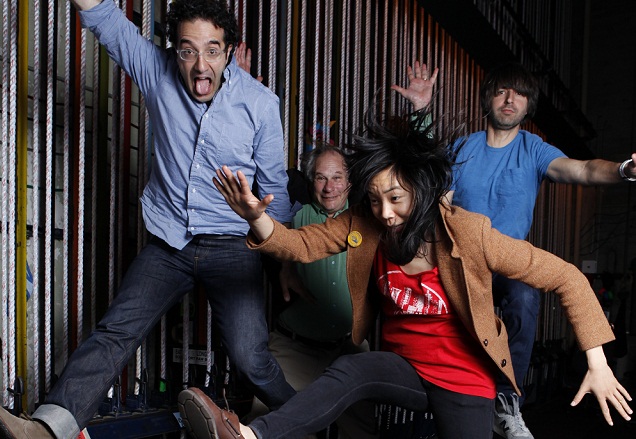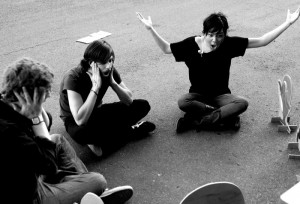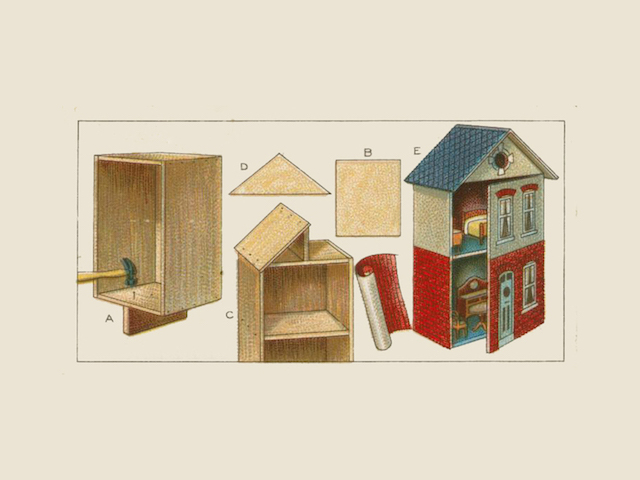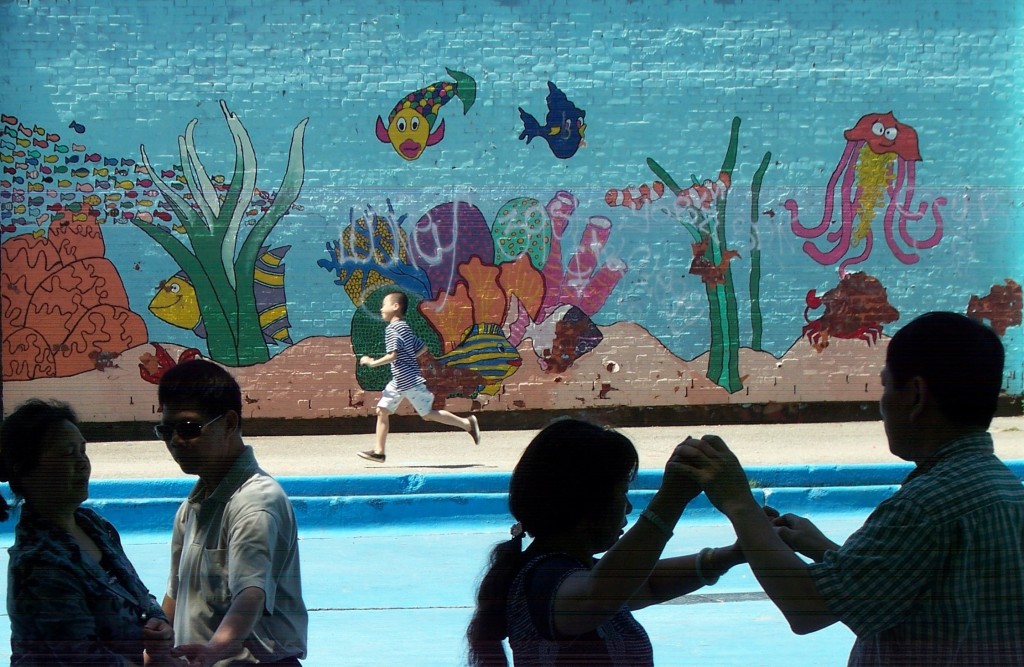“The first real song I wrote was a book report for Lord of the Flies.”

September 19, 2012
Was that something that your mom encouraged? I think she was, in the beginning, quite amused by it. She’s always been really encouraging and supportive. I think she liked it. It was better than me running off with friends—well, friends I didn’t have, anyway. I think she thought it was cute.
And when did it become the thing that you wanted to DO? Like your career? When did that hit you? By the time I was in eighth grade, I knew. The first real song I wrote was a book report for Lord of the Flies and I brought my guitar to perform it. I already knew that I could be a performer. At that point I didn’t know if I was going to be a player or a songwriter, but I knew that I could be a performer of some sort.
Was that the first song that you wrote? First song I wrote. The first complete song I ever wrote was a Lord of the Flies book report.
A book report. That explains so much about your music. Do you remember the song at all? I don’t. I remember it was in A minor and there was a lot of heavy strumming and it was very dark.
Was it like metal? Um, acoustic… it could be like an acoustic metal song. Yeah, perhaps.
Sort of like Tenacious D? Yeah, it was like a dark “battle of the road” type ballad. I say “battle of the road” because that’s another book that we had to read that year and it was about father and son in medieval times and they were both troubadours. It was dark and I had to describe everything and the emotion of the characters. I didn’t want to be too obvious about it. I think from very early on, I’ve never wanted to be too direct in what I said.
Where does that come from, do you think? Is that just who you are? That comes from growing up in a family where no one talks.
That’ll do it. In truth I just don’t know how to communicate directly.
So you decided to play—to sing and play—your book report. At that time, trying to get a sense of who you were at that moment, was that a natural decision for you, or was that a “going out on a limb” kind of decision? No, I think it was pretty natural. I think I was always kind of a ham.
Really? See I don’t— Yeah. Which is funny because one-on-one I’m actually quite, you know—that whole not knowing how to communicate thing. I’m not awesome one-on-one. But I don’t know why, in front of people, I sort of assume a different way.
What’s the difference? What happens in front of people that can’t happen one-on-one? You don’t have to make eye contact, for one. It’s that you’re not accountable. You’re accountable for what you put out, but you can choose how the interaction will go, for the most part. Unless they boo you, in which case maybe you deserved it. There’s a freedom that I really appreciate, being on stage and knowing that you can give of yourself exactly what you are prepared to give.
What are we gonna hear on your new record? I think about this question that Terry Gross once asked to a magician. I’m actually thinking about this by way of hearing Ira [Glass] talk about it—but the question to the musician was, “Don’t you sometimes wish you could show people your tricks?” Because maybe that’s way cooler than the trick itself? I always loved that. So, in this new album, what’s that part of it that you feel so excited about, but maybe you wouldn’t talk about it unless you had some other geek on the line? Maybe it’s a guitar sound? Maybe it’s a particular mood? I think, content-wise, that a lot of these songs were actually—it’s sort of this spiritual element. Speaking a higher self, in a way. There’s an energy to it and an appreciation for being alive that I heretofore had not felt. And it was important to try and capture that without being a dork about it. And you know, I got bored of playing guitar so there’s more banjo and mandolin on it as well. That’s sort of my instrument-geek side.
Interesting. So you feel that these songs, at least in the making side of it, are more optimistic, more exuberant, or is it something— Definitely. I don’t necessarily think that you’d be able to tell. There’s still this sadness there, which I have come to need, but there’s less of it and then there’s more of an optimism.
I always hear both in your music. I mean, I said this onstage. Because sometimes—this is going to sound dumb, but it’s really groovy music. You just want to hear it. It grabs you with its hooks, with its energy, with its beat. Everything about it sort of grabs you. But then if you stop and listen to the music, you’re like, “Oh that’s kind of sad.” I always liked that feeling. Your body’s saying it’s happy but the words are telling you a different story. I mean, I love mo-town music the best, and that’s always been good for me. There’s always—it’s always about heartbreak. But with this record—I agree that that element has existed before, definitely, but in this one it felt different because there was more of a celebration of my own life, a celebration of the act of being alive as opposed to an event or an incident. Or there’s more of an effort to appreciate it.
This is sounding pretty new agey, Thao. You wouldn’t even believe all of the woodwinds we’ve got on here. Can you imagine? And having Enya produce it was like an honor. She was super expensive.
Well, I plan to hear it as soon as you send it to me. And I’m going to remix something for you. I’m going to send it to you today!




